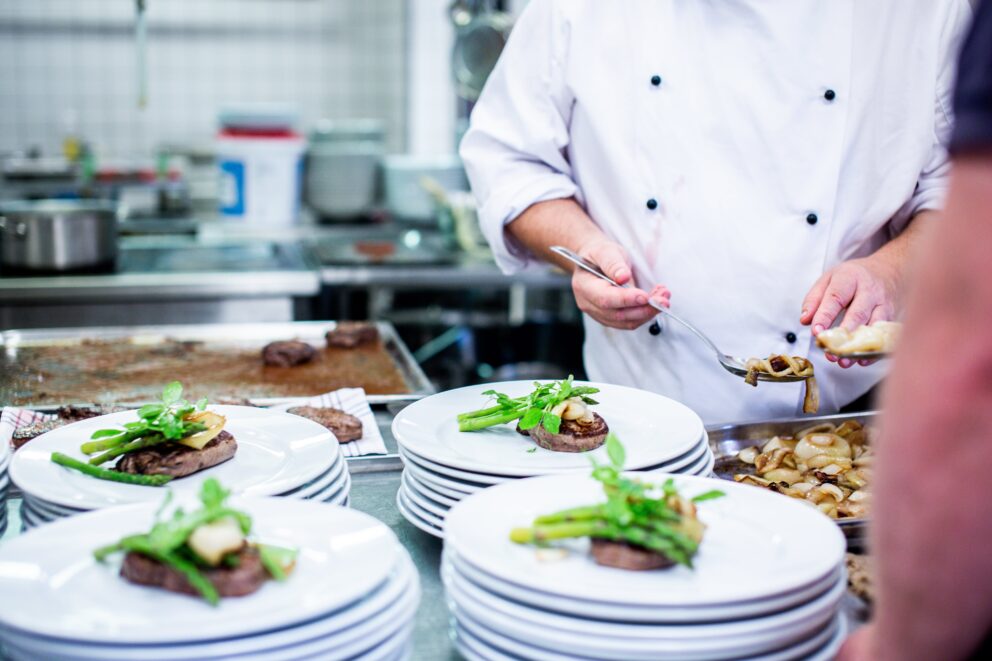How do you become a private chef in UK?
Becoming a private chef in the UK can be a highly rewarding and lucrative career, but breaking into this competitive industry can be a challenge. Whether you’re a recent culinary school graduate or an experienced cook looking to make a change, there are steps you can take to increase your chances of landing your first private chef job in the UK.
Here are seven actionable tips to get you started:
- Build your culinary skills: As a private chef, you’ll be expected to cook for a wide range of dietary requirements and tastes, and you’ll need to be able to produce high-quality, gourmet meals with ease. While no specific education or qualifications are mandatory, improving your culinary skills through training and recognized certifications can give you a competitive edge. To build your culinary skills, consider taking a course at a cooking school like Le Cordon Bleu, or apprenticing under a professional chef, or practicing your cooking skills at home.
- Develop a Strong Portfolio: To stand out in the private chef industry, it’s important to have a comprehensive portfolio that showcases your skills and experience. Your portfolio should include a resume, cover letter, sample menus, and photos of your cooking. Building a website that highlights your culinary talents can be a valuable asset, featuring images of your dishes, testimonials from satisfied clients, and a list of your qualifications and experience. If creating a website is not your strong point, sign up for private chef platforms such as yhangry, which make it easy to create a chef profile, receive payment and collect customer reviews.

- Network with other private chefs: Networking with other private chefs can be a great way to learn about job opportunities and get advice on the industry. Consider attending culinary events, wine portfolio tasting events, joining industry groups and associations, and reaching out to other private chefs in your area. Through yhangry, you’ll gain entry to our exclusive community of chefs, where you can exchange recipes, seek assistance, and even provide support for another chef.
- Obtain Relevant Certifications: While formal culinary training is not always obligatory, holding certifications like the Level 2 Food Hygiene is typically mandatory. It’s also essential to have public liability insurance to safeguard against potential injury or property damage you might accidentally cause. If you work with platforms like yhangry, they’ll typically offer public liability insurance for you.
- Plan your budget: Consider the financial aspects of your venture. While the overhead costs for becoming a private chef are lower than opening a restaurant, you will still need capital for your vehicle, expenses, and ingredients. So plan your budget!
- Consider working as a private chef’s assistant: If you’re just starting out, consider working as a private chef’s assistant to gain hands-on experience in the field. This can be a great way to build your culinary skills and make valuable connections in the industry. Browse popular private chefs in your area and contact them for an apprenticeship
- Be flexible and willing to work hard: Private chef jobs can be demanding, and employers are often looking for candidates who are willing to work hard and be flexible. Be prepared to work long hours and be available for last-minute requests, and be willing to travel to different locations for your clients. Some platforms like yhangry allow you to distinguish between your free travel radius and a larger paid travel radius for which you will have the ability to set your cost per mile.
By following these tips, you can increase your chances of landing your first private chef job in the UK and building a successful career in this exciting and dynamic field. Good luck!
FAQs
- What are the qualifications needed for working as a private chef in the UK?
- Do I need a food hygiene certificate to work as a private chef in the UK?
- What insurance do I need to work as a private chef in the UK?
- What health and safety regulations do I need to be aware of when working as a private chef in the UK?
- Are there any certifications or licenses required to work as a private chef in the UK?
- What kind of training courses are available for private chefs in the UK?
- Are there any professional organizations that offer certifications for private chefs in the UK?
- How much can I expect to be paid as a private chef in the UK?
- Are private chef jobs in the UK typically full-time or part-time?
- Are there any specific cuisines or cooking styles that are particularly in demand for private chef jobs in the UK?